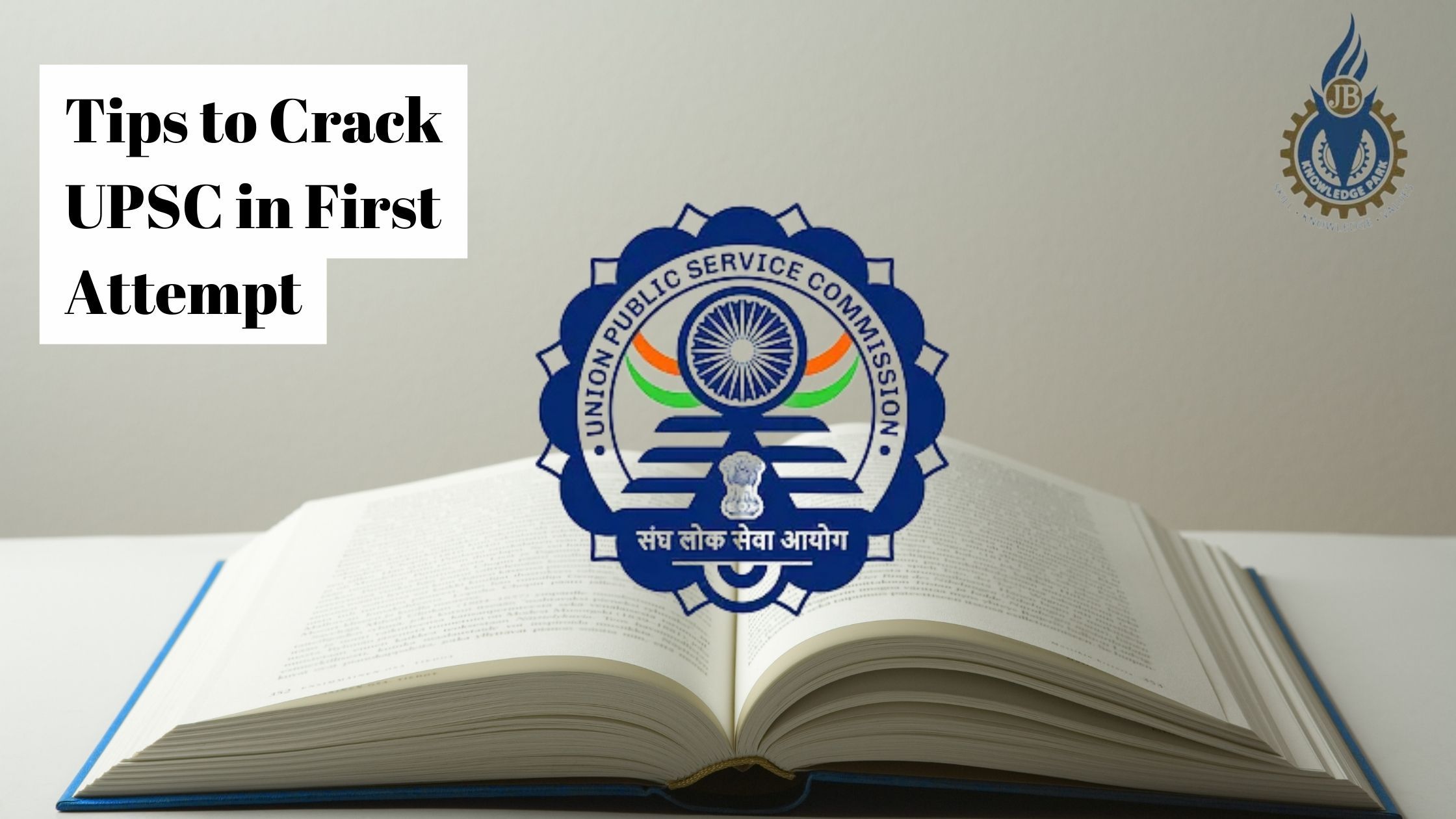Introduction
The Union Public Service Commission (UPSC) Civil Services Examination (CSE) is among the most prestigious and toughest exams in India. It serves as the gateway to becoming an IAS, IPS, IFS, or IRS officer, offering a chance to work in key administrative roles that shape the nation’s policies.
Every year, lakhs of aspirants appear for this exam, but only a few thousand clear the prelims, and even fewer make it to the final selection. The UPSC exam demands a combination of smart strategy, conceptual clarity, disciplined preparation, and relentless dedication. Many candidates attempt multiple times before clearing, but with the right strategy and approach, cracking UPSC in the first attempt is possible.
If you are determined to clear UPSC in 2025, this guide will provide expert tips, preparation strategies, study plans, and subject-wise techniques to help you maximize your chances of success on the very first attempt.
Understanding the UPSC Exam Structure
Before diving into preparation strategies, it's crucial to understand the three stages of the UPSC exam:
1. UPSC Prelims (Objective Stage)
- Two Papers:
- General Studies (GS) Paper I – (200 marks)
- CSAT (Civil Services Aptitude Test) Paper II – (200 marks, qualifying)
- Nature: Objective (MCQs)
- Cut-off based on GS Paper I; CSAT is qualifying (33%)
- Negative Marking: 1/3rd of the marks deducted for each incorrect answer
2. UPSC Mains (Written Descriptive Stage)
- 9 Papers in Total:
- Paper A: Compulsory Indian Language (Qualifying) – 300 marks
- Paper B: English Language (Qualifying) – 300 marks
- Essay – 250 marks
- General Studies I – 250 marks (History, Geography, Society)
- General Studies II – 250 marks (Polity, Governance, International Relations)
- General Studies III – 250 marks (Economy, Science, Environment, Security)
- General Studies IV – 250 marks (Ethics, Integrity, Aptitude)
- Optional Paper I – 250 marks
- Optional Paper II – 250 marks
- Total Marks Considered for Ranking: 1750 Marks
3. UPSC Personality Test (Interview)
- Marks: 275
- Final Merit List: Based on Mains (1750) + Interview (275) = 2025 Marks
Tips to Crack UPSC in First Attempt
1. Understand the Syllabus & Exam Pattern Deeply
- Download and print the UPSC syllabus – it should be your study roadmap.
- Go through previous year question papers (PYQs) to understand trends.
- Analyze weightage – Focus more on high-scoring subjects like polity, economy, and modern history.
2. Choose the Right Optional Subject Wisely
- Optional contributes 500 marks (2 papers of 250 marks each).
- Choose a subject that:
- You are interested in.
- Has concise study material available.
- Has a high success rate and overlap with GS papers.
- Popular options: Public Administration, Geography, Sociology, Political Science, History, Anthropology.
3. Create a Practical Study Plan & Daily Timetable
- Follow a 6-8 hours daily study plan (consistently).
- Divide time as:
- 40% – GS Subjects
- 30% – Optional Subject
- 20% – Answer Writing & Essay Practice
- 10% – Current Affairs & Newspaper Analysis
- Take short breaks to avoid burnout.
4. Master Newspaper Reading & Current Affairs
- Read The Hindu / The Indian Express daily for editorial analysis.
- Follow PIB (Press Information Bureau) and Yojana/Kurukshetra for government schemes.
- Maintain a separate notebook for important current affairs notes.
- Revise monthly current affairs compilations from reliable sources like Vision IAS, Insights, ForumIAS.
5. Focus on NCERTs & Standard Books First
- NCERTs (6th-12th) form the foundation – Read them thoroughly.
- Standard books to follow:
- Polity: M. Laxmikanth
- History: Spectrum (Modern), R.S. Sharma (Ancient)
- Geography: NCERTs + GC Leong
- Economy: Ramesh Singh + Economic Survey
- Science & Tech: NCERTs + Newspapers
- Ethics: Lexicon + Case Studies Practice
6. Answer Writing Practice is the Key
- Join a Mains answer writing program from day one.
- Practice daily GS questions and get them evaluated.
- Work on structuring answers – Intro, Body, Conclusion.
- Use diagrams, flowcharts, maps to improve presentation.
7. Master CSAT (Qualifying but Important)
- Don’t neglect CSAT – 33% required to qualify.
- Solve previous year questions, focus on maths, reasoning, comprehension.
- Daily 30-40 mins CSAT practice is enough.
8. Attempt Mock Tests for Prelims & Mains Regularly
- Take full-length Prelims mocks (100+ papers) before the exam.
- Enroll in a test series (Vision IAS, ForumIAS, Drishti IAS).
- Mains Answer Writing Test Series improves speed & quality.
9. Time Management & Smart Work
- Prioritize high-weightage topics in GS papers.
- Revise notes multiple times instead of collecting too many books.
- Use mind maps, flowcharts, and digital apps like Evernote/Notion.
10. Stay Mentally Strong & Avoid Burnout
- UPSC is a marathon, not a sprint.
- Avoid distractions (social media, negativity).
- Maintain physical fitness through yoga, meditation, or jogging.
- Surround yourself with motivated aspirants or mentors.
Conclusion
Cracking the UPSC Civil Services Examination in the first attempt may seem like an overwhelming challenge, but with dedication, strategic planning, and consistent effort, it is absolutely achievable. Thousands of aspirants prepare for this exam every year, but only those with a disciplined approach, clear understanding of concepts, and smart study techniques make it to the final list. The journey to becoming an IAS, IPS, or IFS officer is long and demanding, but the reward of serving the nation and making a difference in people’s lives is truly worth the effort.
If you are serious about clearing UPSC in 2025, you need to adopt a well-structured strategy, focusing equally on Prelims, Mains, and the Personality Test. The right combination of conceptual clarity, current affairs analysis, daily answer writing, and regular mock tests will boost your confidence and ensure that you perform well in all three stages of the exam.
Key Takeaways for First-Attempt Success:
- Start Early & Stay Consistent – Success in UPSC requires long-term commitment. Make a realistic study plan and follow it diligently.
- Prioritize Conceptual Clarity Over Rote Learning – Understanding the ‘why’ and ‘how’ behind concepts is crucial for answering analytical questions in Mains and Interview.
- Revise, Revise, and Revise! – Multiple revisions will help retain information better. UPSC is more about retention and recall than just reading multiple books.
- Practice Answer Writing from Day One – Writing high-quality, structured answers is the key to scoring well in Mains.
- Stay Updated with Current Affairs – Newspapers, government reports, and monthly current affairs compilations are non-negotiable for UPSC success.
- Attempt Maximum Mock Tests – The more you practice, the better you get. Mock tests help in self-evaluation, time management, and confidence-building.
- Stay Motivated and Mentally Strong – UPSC preparation is a marathon, not a sprint. Stay positive, take breaks when needed, and believe in yourself.
Also, Visit BPSC Interview Preparation







